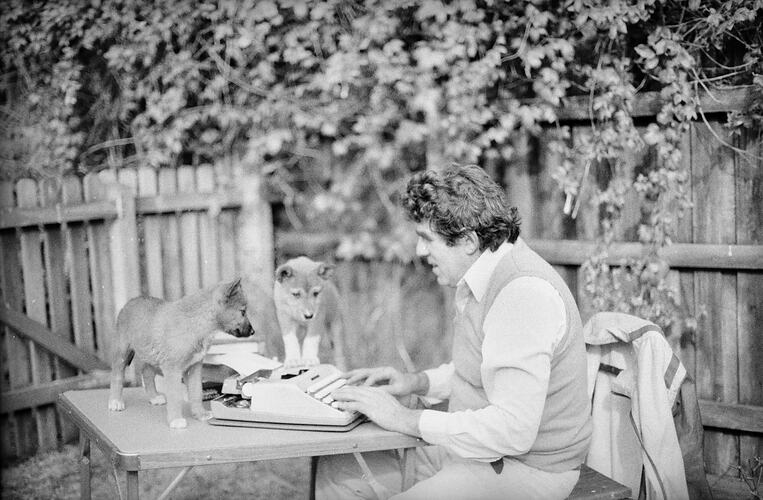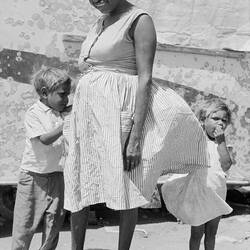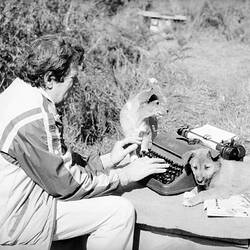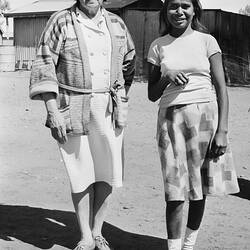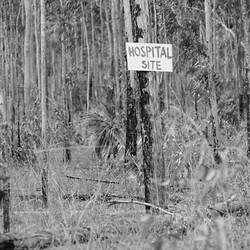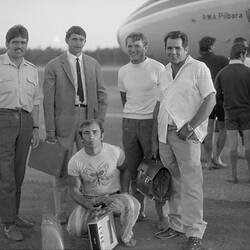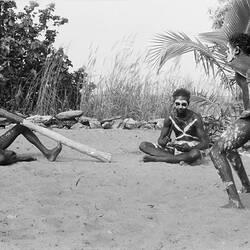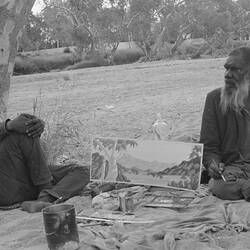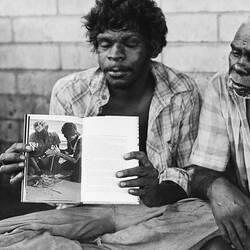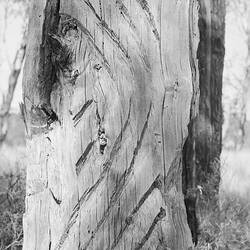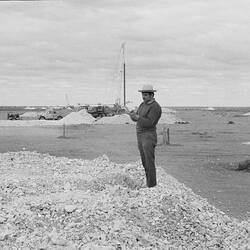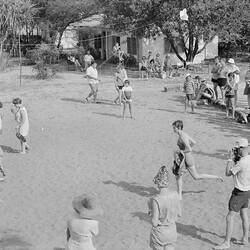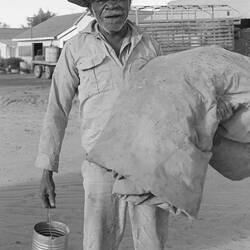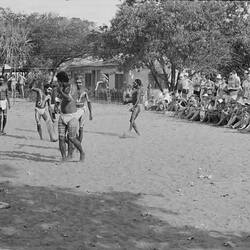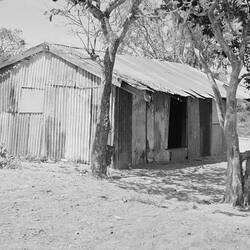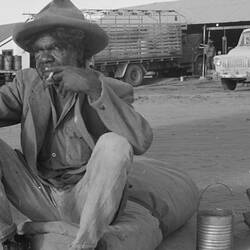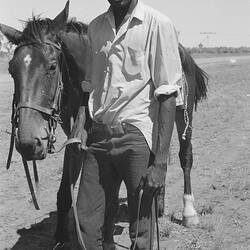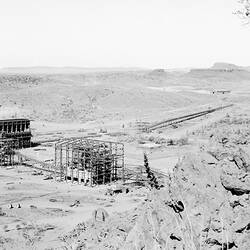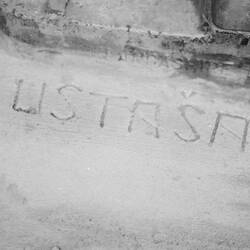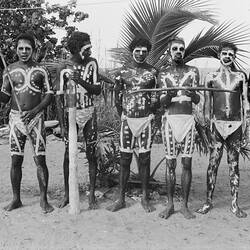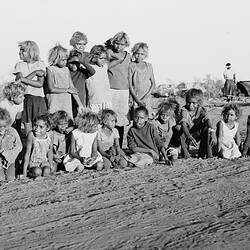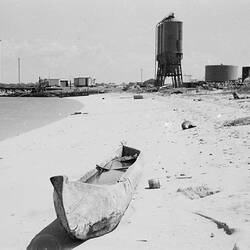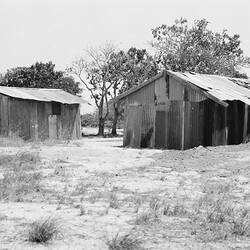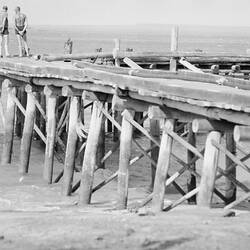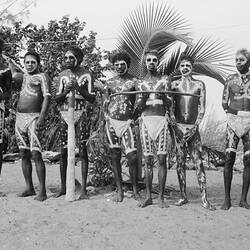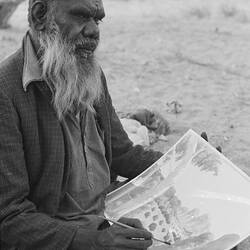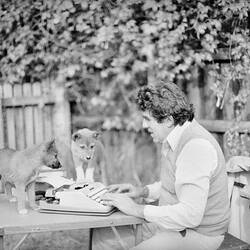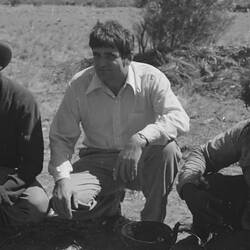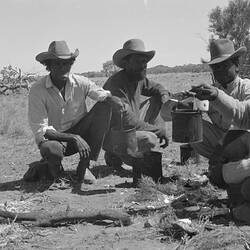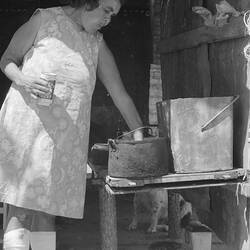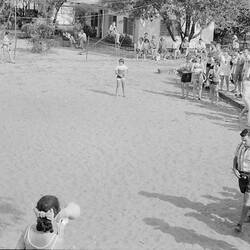Sreten Bozic (aka B. Wongar) was born in Gornja Tresnjevica, Serbia (then Yugoslavia) in 1932. He fled his home country after the Second World War, and in 1948 travelled through Italy seeking refuge in the cosmopolitan milieu of Paris. Then in his early twenties, Bozic soon made the acquaintance of an elderly man, a well-known bibliophile and socialist 'with a Bulgarian name', that often frequented the bookstalls along the River Seine. It was via this man that Bozic came to meet a number of people involved in the socialist and Anti-Algerian War movement, such as Simone de Beauvoir and Jean-Paul Sartre. Bozic later used these acquaintances, as well correspondence with the authors Heinrich Böll, Samuel Beckett and Alan Paton, to elicit support for his literary ambitions in Australia. He also corresponded with prominent Aboriginal people such as Sir Doug Nicholls, Yami Lester, and Gordon Bryant.
With access to the American embassy in Paris hampered by long queues and waiting times, Bozic decided to opt for a faster route out of France and made an application immigrate to Australia. In Melbourne, Bozic sought out the mentorship of the renowned humanist and left-wing author, Alan Marshall (1902-1984). Bozic remembers arriving at Alan Marshall's home to find the author - who had been crippled by polio at age sixty - trying to fit a trailer to a car. The two men began a conversation which ended with Marshall recommending that Bozic write about the Australian bush and its Aboriginal people. Taking Marshall's advice, Bozic began to travel throughout Australia with his brothers, Milosav and Milenko, working on mining sites at Coober Pedy (South Australia), Paraburdoo (Western Australia) and taking labouring jobs in the Northern Territory. Whilst employed in these capacities Bozic began to write about the Aboriginal people that he encountered and photographed. Some of his notable informants at this time were Aboriginal men such as 'Prince of Wales' and the Ngolokwangga (Malak Malak) elder Jim Muluk. In 1972 a book of myths collected from men of the Delissaville Aboriginal community (now Belyuen Aboriginal Community) and Gove area was published as 'Aboriginal Myths' (in conjunction with Alan Marshall).
Bozic went on to spent a number of years in Arnhem Land where he adopted the name Banumbirrr Wongar (Wangarr), meaning Morning Star Dreaming in the local Yolngu Matha language. Under the 'Wongar' moniker he has published fourteen books, novels, short stories and poems, and has won many awards including the American Library Association Award (1982) and the Pen International Award (1986). This success has nonetheless been tarnished by accusations of cultural appropriation. Novelist and playwright, Thomas Kenneally, for example, has commented that while Wongar's work is celebrated in Europe and that he may one day be regarded as 'a highly significant Australian writer', 'his deception has soured his reception in the English-speaking world'. Wongar was a writer-in-residence at the Aboriginal Research Centre at Monash University in the late 1980s, and in 2009 'Barnabir' Wongar was awarded an Honorary Doctorate in the Faculty of Philology and Arts in at the University of Kragujevac, Serbia. He lives in Melbourne and continues to work tirelessly on his various writing projects.
References
Bozic, Sreten, and Alan Marshall (1972) Aboriginal Myths. Melbourne: Gold Star Publications
Keneally, Thomas. (2003) "The Borrowers." The Age, August 30th.
Meyer, Therese-Marie. (2006) Where Fiction Ends: Four Scandals of Literary Identity Construction. Königshausen & Neumann.
More Information
-
Keywords
-
Authors
-
Article types
